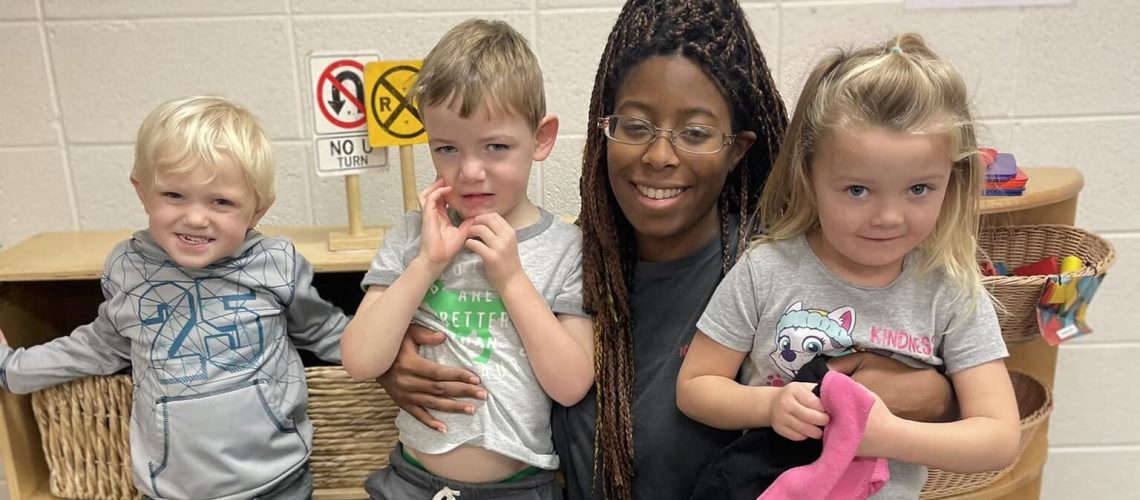Building warm, trusting relationships with the children in our care is one of the most important things we can do as an educators. Research shows that close relationships formed in early childhood can positively impact children’s academic and social-emotional skills while conflictual relationships can have a detrimental impact on the child’s well-being and development.
Here are some tips that we share with our teachers to build these positive relationships:
CONFLICT IN YOUR CLASSROOM: START WITH HELLO.
It is important that all children feel welcome in your classroom. Providing a warm greeting at the start of the day can go a long way in communicating that you are glad to see them and that they are entering a safe environment where they will be taken care of.
TAKE TIME TO CHECK IN.
Find time to ask children how they’re feeling, especially when something seems off. They may need help naming the emotion they’re experiencing.
AVOID COERCIVE AND PUNITIVE INTERACTIONS.
Coercive patterns occur when an adult responds in a way that reinforces an undesirable behavior by a child. For example, if a child is frustrated and acts out and you respond in a harsh manner, this may result in the child feeling more frustrated and acting out again. Similarly, a child may refuse to do what they’re asked to get attention from you. Ignoring this initial defiance and then providing positive encouragement after the child complies is a much more effective way of dealing with this behavior than escalating the situation.
HAVE FUN!
Coming to the classroom should be an enjoyable experience. You can be silly and laugh with children in your care. Try to make the room warm and relatable to the children and look for fun activities that everyone can be a part of.

